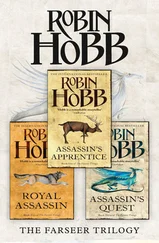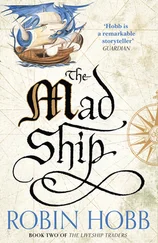It overwhelmed him. In the main part of the street, folk strolled arm in arm, dawdling to look at booths just as they might in any marketplace. They spoke of colour and size, of age and sex. But the livestock and goods they perused were human. There were simple coffles standing in courtyards, a string of people chained together, offered in lots or singles, for general work on farms or in town. At the corner of the courtyard, a tattooist plied his trade. He lounged in a chair beside a leather-lined head vice and an immense block of stone with an eye-bolt worked into it. For a reasonable price, the chant rose, a reasonable price, he would mark any newly-purchased slave with the buyer’s emblem. The boy calling this out was tethered to the stone. He wore only a loincloth, despite the winter day, and his entire body had been lavishly embellished with tattoos as a means of advertising his master’s skill. For a reasonable price, a reasonable price.
There were buildings that housed slaves, their specialities advertised on their swinging signs. Wintrow saw an emblem for carpenters and masons, another for seamstresses, and one that specialized in musicians and dancers. Just as any type of person might fall into debt, so one might acquire any type of slave. Tinker, tailor, soldier, sailor, Wintrow thought to himself. Tutors and wet-nurses and scribes and clerks. Why hire what you could buy outright? That seemed to be the philosophy here in the slave-market, yet Wintrow wondered how those shopping for slaves could not see themselves in their faces, or recognize one’s neighbours. No one else seemed disturbed by it. Some might hold a lace kerchief fastidiously to the nose, distressed by the odour. They did not hesitate to demand a slave stand, or walk, or trot in a circle the better to inspect him. Latticed-off areas were provided for the more private inspection of the females for sale. It seemed that, in the eyes of the buyers, a failure of finances instantly changed a man from a friend or neighbour into merchandise.
Some, it appeared, were not too badly housed and kept. They were the more valuable slaves, the well-educated and talented and skilled. Some few of those even appeared to take a quiet pride in their own worth, holding themselves with pride and assurance despite being marked with a tattoo across the face. Others were what Wintrow heard referred to as ‘map-faces’ meaning that the history of their owners could be traced by the progression of different tattoos. Usually such slaves were surly and difficult; tractable slaves often found permanent homes. More than five tattoos usually marked a slave as less than desirable. They were sold more cheaply and treated with casual brutality.
The face-tattooing of slaves, once regarded as a barbaric Chalcedean custom, was now the norm in Jamaillia City. It pained Wintrow to see how Jamaillia had not only adopted it, but adapted it. Those marketed as dancers and entertainers often bore only small and pale tattoos, easily masked with make-up so that their status would not disturb the pleasure of those being entertained. While it was illegal still to purchase slaves solely to prostitute them, the more exotic tattoos that marked some of them left no doubt in Wintrow’s mind as to what profession they’d been trained to. It was easier, often, to see their tattoos instead of meet their eyes.
It was while he was passing a street-corner coffle that a slave hailed him. ‘Please, priest! The comfort of Sa for the dying.’
Wintrow halted where he stood, unsure if he were the one addressed. The slave had stepped as far from his coffle as his fetters would allow. He did not look the sort of man who would seek Sa’s comfort; tattoos sprawled over his face and down his neck. Nor did he look as if he were dying. He was shirtless and his ribs showed and the fetter on his ankle had chafed the flesh there to running sores, but other than that, he looked tough and vital. He was substantially taller than Wintrow, a man of middle years, his body scarred by heavy use. His stance was that of a survivor. Wintrow glanced past him, to where his owner stood a short way off, haggling with a prospective buyer. The owner, a short man who spun a small club as he talked, caught Wintrow’s gaze briefly and scowled in displeasure, but did not leave off his bargaining.
‘You. Aren’t you a priest?’ the slave asked insistently.
‘I was training to be a priest,’ Wintrow admitted, ‘though I cannot fully claim that title as yet.’ More decisively he added, ‘But I am willing to give what comfort I can.’ He eyed the chained slaves and tried to keep suspicion from his voice as he asked, ‘Who needs such comfort?’
‘She does.’ The man stepped aside. A woman crouched miserably behind him. Wintrow saw then that the other slaves clustered around her, offering her the warmth and scant shelter of their gathered bodies. She was young, surely not more than twenty, and bore no visible injuries. She was the only woman in the group. Her arms were crossed over her belly, her head bowed down on her chest. When she lifted her face to regard him, her blue eyes were dull as riverstones. Her skin was very pale and her yellow hair had been chopped into a short brush on her head. The shift she wore was patched and stained. The shirt that shawled her shoulders probably belonged to the man who had summoned Wintrow. Like the man and the other slaves in the coffle, her face was overwritten with tattoos. She bore no traces of injury that Wintrow could easily see, nor did she appear frail. On the contrary, she was a well-muscled woman with wide shoulders. Only the lines of pain on her face marked her illness.
‘What ails you?’ Wintrow asked, coming closer. In some corner of his soul, he suspected the coffle of slaves were trying to lure him close enough to seize him. As a hostage, perhaps? But no one made any threatening moves. In fact, the slaves closest to the woman turned their backs to her as much as they could, as if to offer this token of privacy.
‘I bleed,’ she said quietly. ‘I bleed and it does not stop, not since I lost the child.’
Wintrow crouched down in front of her. He reached out to touch the back of her arm. There was no fever, in fact her skin was chill in the winter sunlight. He gently pinched a fold of her skin, marked how slowly the flesh recovered. She needed water or broth. Fluids. He sensed in her only misery and resignation. It did not feel like the acceptance of death. ‘Bleeding after childbirth is normal, you know.’ He offered her. ‘And after child loss as well. It should stop soon.’
She shook her head. ‘No. He dosed me too strong, to shake the child loose from me. A pregnant woman can not work as hard, you know. Her belly gets in the way. So they forced the dose down me and I lost the child. A week ago. But still I bleed, and the blood is bright red.’
‘Even a flow of bright red blood does not mean death. You can recover. Given the proper care, a woman can—’
Her bitter laugh cut off his words. He had never heard a laugh with so much of a scream in it.
‘You speak of women. I am a slave. No, a woman need not die of this, but I shall.’ She took a breath. ‘The comfort of Sa. That is all I am asking of you. Please.’ She bowed her head to receive it.
Perhaps in that moment Wintrow finally grasped what slavery was. He had known it for an evil, been schooled to the wickedness of it since his first days in the monastery. But now he saw it and heard the quiet resignation of despair in this young woman’s voice. She did not rail against the master who had stolen her child’s life. She spoke of his action as if it were the work of some primal force, a wind storm or river flood. His cruelty and evil did not seem to concern her. Only the end product she spoke of, the bleeding that would not cease, that she expected to succumb to. Wintrow stared at her. She did not have to die. He suspected she knew that as well as he did. If she were given a warm broth, bed and shelter, food and rest, and the herbs that were known to strengthen a woman’s parts, she would no doubt recover, to live many years and bear other children. But she would not. She knew it, the other slaves in her coffle knew it and he almost knew it. Almost knowing it was like pressing his hand to the deck to await the knife. Once the reality fell, he could never be the same again. To accept it would be to lose some part of himself.
Читать дальше











